Planning Your Career in Product – Part 1

Welcome to my new mini-series. This series will aim to equip you with what you need to plan your career in the realm of product managers.
In this chapter we’ll focus on whether product management is for you or not.
Let’s go.
Before Everything Else
My basic assumption is that you have a great motivation to be part of the creative process of designing and releasing products that people would love to use. If you don’t have such a motivation – then don’t bother reading any further. It’s not for you.
Do you have such motivation? Great. Let’s proceed.
The Basic Requirement
I already noted before (here) that as I see it – 90% of everything product managers do involves some sort of communication.
Therefore, the first questions you need to ask yourself are:
- Do you enjoy working with other people?
- Do you have decent interpersonal communication skills?
- Can you express yourself well in both verbal and written communication?
The answers to these questions are crucial because you are going to constantly communicate with internal and external stakeholders throughout your product management career. Therefore, if the answer to any of the questions above is ‘no’ then maybe product management is not for you.
I love to communicate with others and I can express myself well. That’s not an issue.
Awesome. You’ve passed the basic requirement.
Now let’s talk for a second about what you want. Why are you curious about product management? Why do you consider transitioning to product management?
Here are some possible reasons that various people have given me over the years when I asked them that:
- I’m tired of my current role and I’m not sure what other roles are available for me. Product management looks interesting.
- I’d like to have a bigger impact on the business than I have in my current role
- The features we’re working on are BS. I can do a much better prioritization job than the current PM
- I can no longer be told just what to build. I want to understand why we are told to build that and why it’s important.
- The was a vacancy in the PM position and I was asked if I would like to try to fill it
Now, let me start by saying that any of the above are legit reasons to experiment with product management, if the opportunity is given to you.
However, some motivations above are ‘weaker’ than the others in the sense that you are more likely to find out eventually that product management is not for you after all.
For example – the fact that the current PM you are working with sucks, doesn’t mean that by getting into their shoes you’ll do a better job or even enjoy it.
However, if impact is what you are after and the various business dynamics that drive the company forward intrigue you – then product management may be indeed what you are after.
Ok, but what does a ‘day in the life of a product manager’ look like?
Most likely you’ll start your product manager career as a junior product manager. As such, your boss will probably assign you with a few aspects of the product that you will own.
You might own several features or you might even own several complete modules – depending on the size of the product and what your boss believes you can handle as a junior. Whatever it is – you’ll have some ownership over parts of the product.
Within this ownership – the majority of your day-2-day reality, at first, would be:
- Taking features from ideation to production – including the discovery process, writing the spec, hand it over to implementation and releasing to production
- Handling priorities and conflicts. For example – a production issue was discovered. Should the engineering team drop everything and resolve it or can it wait?
- Attending various meetings, including dailys, sprint planning and any other meeting which relates to the agile development methodology which you decided to adopt
It may not sound like a lot, but it is. For example – the discovery process mentioned above, by itself, can consume a great majority of your time, because it encompasses so much, including meeting customers, doing market research, considering various approaches to solving the pains and reiterating once your conclusions are being challenged (by your boss or the team).
If you find yourself having a lot of free time on your hands as a junior product manager then your boss is probably being too easy on you and you should ask him/her for more ownership. Most likely, though, the first days as a product manager can be quite overwhelming. You will learn to hone your time management skills.
As you become more experienced you’ll probably look to be more involved in the bigger picture and not just in what’s in front of you. If you became a product manager for the right reasons – then once you feel comfortable with the ‘hands-on’ aspects of your work, you would probably want to be more involved with the planning processes. Starting with the quarterly planning and progressing to the roadmap planning.
You will start progressing according to the CAF Product Framework, and this is where the big impact hides.
What qualities will help me in my journey?
We already discussed the ability to communicate with others and to express yourself as the key quality you must possess.
There are other qualities which are important. Here are some of them:
Leadership skills
As a product manager you often need to make other people execute on your decisions, even though they don’t report to you. This is, of course, what we refer to as leadership. Yes, any product manager is a leader to some extent. The more you are able to motivate people to do as you ask without pulling your rank (e.g. – you should avoid saying – ‘I am the product manager and therefore you must do as I say’) the higher your leadership score is.
Focusing on the value
Focus is another quality that will greatly help you in your journey. You shouldn’t be easily distracted by everything other people will throw at you. And believe me – all of the internal stakeholders you are working with will fight for your attention. It may make you feel important at first – but eventually you’ll understand that everyone is just trying to promote their interests through you. And it’s ok. They are just trying to do their job. You must always stay focused on the things that actually move the needle and use your communication skills to explain why everything else is not prioritized.
Mastering the ‘why’
I wrote a post about what ‘mastering the ‘why’’ means. You can read it here.
Essentially, though, it means being thorough when it comes to the motivation behind a feature, understanding why it’s needed and what would be the impact if the pain is solved. God is in the details. Before you start working on a spec – make sure you do your research properly. Don’t fall in love with your assumptions and don’t be lazy. Go to your customers and/or users and validate them. Make sure you understand the ‘why’ and you have enough signals to justify the work on the feature.
Analytical thinking and being data driven
Many mention analytical thinking as an important quality for product managers. In the world of big data and where data driven decisions matter – your ability to learn the story the numbers are telling you is definitely important. However, it’s crucial to remember that the data, by itself, can’t always tell the full story, so you must not forget that eventually you are serving people – so spending time with your customers and users is even more important.
Project management
Last – any product manager is also a project manager to some extent. Your ability to coordinate a group of people will greatly help you execute on the features you own. This is certainly a quality you want to possess and master.
I can mention here many other qualities, but if you possess most of the qualities from the list above – then you are probably going to be a good product manager.
Downsides of being a product manager
I guess that for any profession there are downsides. And I guess many product managers can mention different aspects of their job as ‘downsides’.
For me, though, there is only one main downside for being a product manager and that’s you can no longer escape the internal politics of the business. You have joined the grown-ups game, and sadly that involves office politics and ego wars.
If that bothers you a lot – consider a smaller company because there you’ll experience much less politics than bigger companies.
Summary
If you are looking to make a bigger impact in any company you work for, if you find yourself attracted to the dynamics of the business and if you communicate well with others – then product management may indeed be what you are looking for. Some qualities such as leadership, focus, analytical thinking and project management skills will definitely help you in your journey.
I hope that above will assist you in making the decision that fits you best.
And that wraps up the post for today. Good luck!
